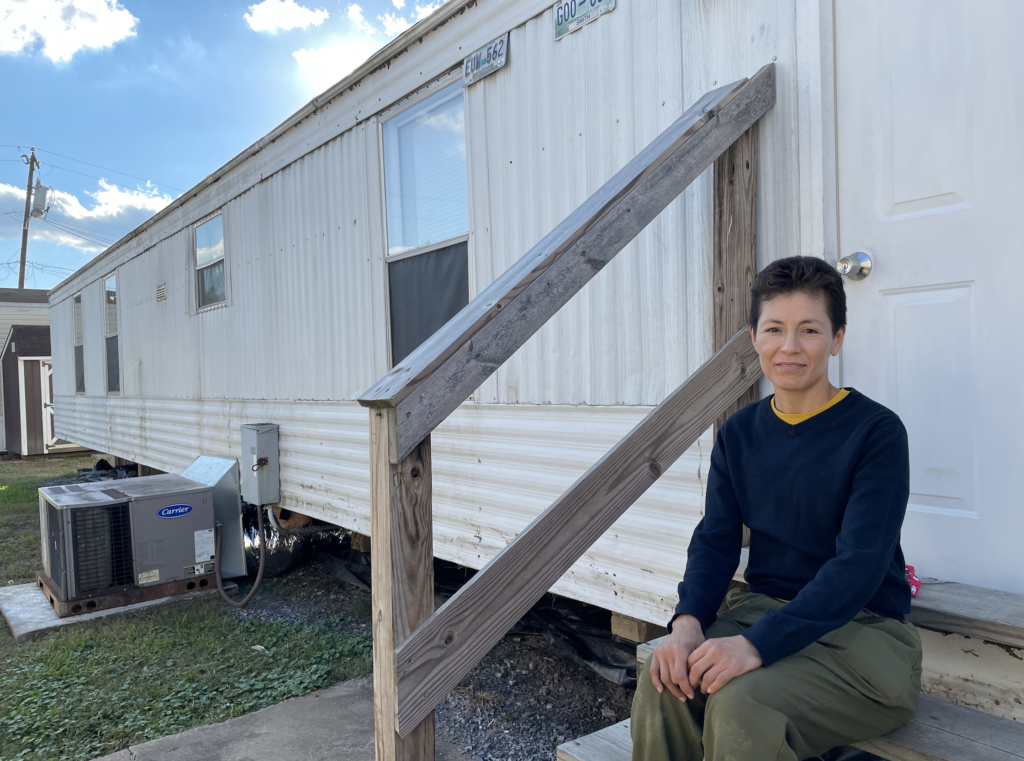
Gisela Olalde’s trailer signified a fresh start.
She bought her mobile home in 2017, after leaving an abusive marriage. It took about a year but Olalde was able to purchase a two-bedroom, two-bathroom trailer — the perfect size for her and her two young children. It had bright blue walls, tall windows, a washer and dryer.
But the home and life she knew now hangs in the balance since her landlord sold the land beneath her trailer community on Dickerson Pike.
“Having this place was a dream,” Olalde says. “That’s the hardest part, because I worked really hard for this.”
Olalde is among several residents who moved out early on the condition that their landlord would provide a new place to park and live. But Olalde says she’s ended up in a worse situation. It’s been nearly three months since she could live in her own home because of delays related to her utilities. Even though some progress has been made, Olalde’s trailer is yet to have functioning water or power.
“They thought they were making the smart move and they’ve ended up in the exact situation that they were most fearful of,” says Jamie Paulen, an attorney representing Olalde and two other former Dickerson Pike residents who regret taking the deal.
Olalde’s experience reveals just how narrow the options are for Dickerson Pike residents. Opportunities for mobile home living in Nashville are shrinking. It’s also risky and costly to try to transport trailers. Renting an apartment can also be elusive, especially at the $450 monthly price tag that Dickerson Pike residents were paying each month to park their homes.
The problem all started in June when the property owner decided to redevelop the W.C. Mobile Home Community. The landlord said he knew of 10 trailer parking spots at a nearby site. But it would be first come, first served.
Olalde knew a lot was at stake. She says she was interested, but also wasn’t given much information on the deal. She was scared to ask too many questions, worried that it would jeopardize the opportunity.
So, in August, Olalde packed three small suitcases for her and her two kids, and left. Then, she waited.
Olalde expected to move back to her place by September. But city records show that her landlord didn’t apply for an electrical permit until the end of that month. It wasn’t until Oct. 29 that Olalde learned her electric wiring was ready for her to apply to Nashville Electric Service.
Landlord Tony Clouse says the setbacks were due to a third-party company who oversaw the move of the trailers, and that he wasn’t aware of delays in applying for permits. He says most residents who took the offer are able to return to their mobile homes.
“I get being upset. Nobody likes to be inconvenienced,” Clouse says. “But everything that’s gone on out there is been done, we got it behind us.”
Clouse also stands by his deal, saying despite the delay, he was able to provide an affordable alternative. He also notes that he paid out of pocket to transport each mobile home.
But another tenant, Hilario Rodriguez, says he also regrets the move.
Rodriguez says his trailer’s walls were splintered while it was being transported. And he suspects that’s how rain leaked through and caused further devastation.
“I don’t know what happened, but this wall was white and now it’s damaged and full of mold,” he says in Spanish.
As a result, Rodriguez’s home is strangely humid and reeks of mildew. He says he’s unsure if he can afford repairs and is considering abandoning the trailer entirely. But saying goodbye isn’t easy.
“Even though the house looked very humble, we were very happy,” he says, adding that he’s already poured thousands into this home.
Olalde, too, wishes she’d stayed in place instead of taking the deal. Even though her utilities are nearly set up, Olalde says she doesn’t feel welcome at the new mobile home park. Most of her neighbors are white and older, compared to previously living alongside many Latinos with young families, she says.
For weeks, Olalde and her kids have been staying at her mother’s home. It’s cramped, with six other family members.
In the meantime, several residents who stayed on Dickerson Pike are still fighting for compensation. They’ve been given until the end of the year to leave and Nashville’s Metro Council has been considering a proposal to rezone the land for redevelopment.
Although Olalde moved out, she’s stayed involved with those still in the community.
“They’re hopefully not going to have to live the nightmare,” she says, “that I’m living.”

